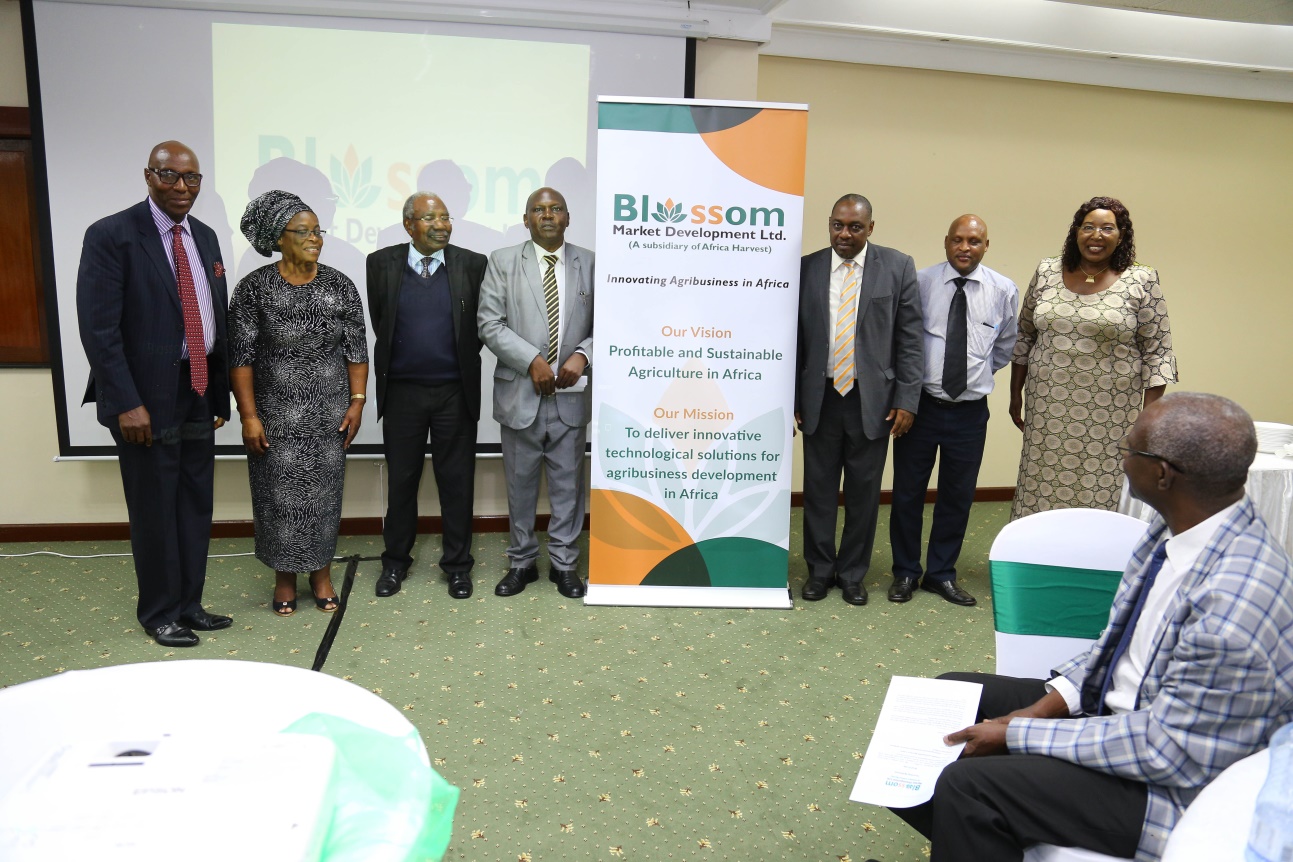Lauding the launch of Blossom Prof. Boga said: “Private and public partners need to work together to enhance farmers access to inputs, mechanization, extension and marketing support and to get organized into groups for their farming endeavors to be profitable. Blossom will indeed play a key role of intermediary to ensure smallholder farmers in Africa benefit from all the technological innovations that private and public players have to offer along the whole value chain.”
Among the target groups Blossom will serve are farmers, companies both public and private, private investors, non-governmental organizations and government institutions. Value chain actors face a myriad of agricultural and marketing constraints as they endeavor to do business. These include low productivity as a result of minimal use of inputs; limited access to improved technologies; limited adoption of improved agronomic practices; low volumes; high prices; information asymmetry; and high transactional costs. It is some of these challenges that Blossom will address in its service offering.
Blossom Markets Development Ltd is a 100% owned subsidiary of Africa Harvest that is headquartered in Kenya with operations in Africa. Blossom will leverage Africa Harvest’s 16 years’ experience of streamlining the whole value chain, inclusive marketing, and aggregation. It will be a one stop shop for smallholder producers for: agricultural innovations; services; training; capital access; financial linkages; extension services; and market linkages both local and international.
“Blossom will be the link between local and international research institutions, private sector players in ICT, labs, agro-chemical companies, fabricators, animal vaccine producers among others and end users of their products such as organized groups including cooperatives, farmer, youth, and women groups; aggregators, county governments, contractors, and even individual farmers,” said Dr. Ephraim Mukisira, Blossom Markets Development Ltd Board Chair.
Board members who will provide oversight to the company are:
Mrs. Sylvia Banda, who is a seasoned entrepreneur and the Managing Director of Sylvia Food Solutions in Zambia that works to increase the demand for locally produced traditional food by creating entrepreneurial hubs that give farmers access to markets. She also serves as the President of the African Women’s Entrepreneurship Program (AWEP), a Board Member of Industrial Development Corporation (IDC) Zambia, and Board Vice Chairperson of Agri-Business Incubation Trust. Mrs. Banda also has over 20 years’ experience in African agriculture entrepreneurship.
Dr. Florence Wambugu the founder, Director and CEO of Africa Harvest since 2002. Though a plant pathologist with specialisation in virology and genetic engineering, she is a firm supporter of farming as a business that has seen Africa Harvest support farmers of various crops and SMEs to establish businesses along the whole value chain.
Mr Joseph Kibe is the Chair of the Kenya Horticulture Crops Development Authority that is currently being transformed into the Horticultural Crops Directorate of Agriculture, Fisheries and Food Authority (AFFA). In the past, Mr. Kibe has served as a civil servant in Kenya and as a Permanent Secretary in various government ministries. He is currently involved in agricultural development as an investor, with particular interest in international horticultural trade. His special interest in financial investment and corporate governance has led to his current involvement as a Director in over 10 private sector companies and non-profit foundations and trusts.
Dr. Ephraim Mukisira is a consultant with the International Livestock Research Institute (ILRI), and holds a PhD in Animal Science from McGill University, Canada and a MSc in Animal Science from Louisiana State University in Baton Rouge, USA. He previously worked as a Director/CEO, and Assistant Director of the then Kenya Agricultural Research Institute (KARI) now Kenya Agricultural and Livestock Research Organisation. While here he was credited for having overseen the introduction of a private sector business model including that of the KARI Seed Unit.

